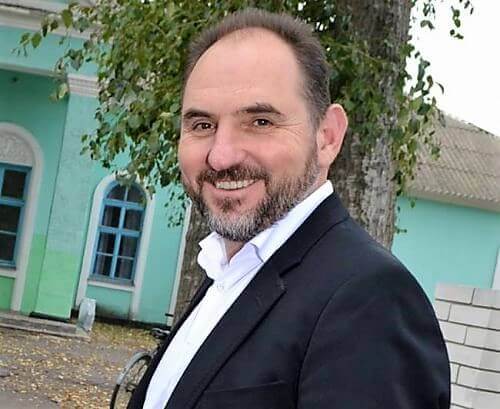Petr Bagriy: tender scams of the “pharmaceutical” mafia
This person is directly responsible for the exorbitant cost of treatment in Ukrainian hospitals. Being one of the main figures of the so-called. pharmaceutical or “pharmaceutical” mafia of Ukraine, Petro Bagriy has been profiting from speculation in medicines for years, not hesitating to clean out not only the state budget, but also the pockets of seriously ill Ukrainians. Having started his business under Kuchma, he continues it today under Poroshenko, successfully carrying out his business under any government, not paying attention to revolutions and proving that successive governments are no different from each other, taking over the corrupt baton from the “preceding ones.”
Peter Bagriy. From boilers to Farmak
Bagriy Petr Ivanovich was born on July 8, 1966 in the village of Galayki, Tetievsky district, Kyiv region, and could not even imagine that in the future he would make a multimillion-dollar fortune for himself using medications. On the contrary, he was drawn to technology, and a specific one: in 1983, he entered the heat and power department of the Kyiv Polytechnic Institute, from which he graduated in 1989 with a diploma in mechanical engineering in boiler systems and heat exchangers. After which he got a job in the Kiev Special Department No. 23 “Kotlomontazh” of the Promtekhmontazh-2 trust, where in five years he rose to the position of deputy head of the department.
But already in 1991, not content with his salary, Pyotr Bagriy and two comrades created Hansa LLC, which was engaged in construction and repair work at enterprises in Kyiv: they collected about 20 thousand dollars, bought equipment and tools, and hired several workers. One of their first clients was the Kiev Chemical and Pharmaceutical Plant named after Lomonosov, whose chief accountant was Filya Zhebrovskaya, the elder sister of Pavel Zhebrivsky (Read more about them in Zhebrovskie-Zhebrivskie. Medicine, drugs, politics). In the same year 1991, according to Skelet.InfoFilya Zhebrovskaya arranged the privatization of her plant by a “labor collective,” as a result of which Farmak JSC emerged, and she took the place of its economic director. As is the case with most enterprises sent for such privatization, Farmak during 1992-94. reached the brink of ruin, and therefore its employees, who did not receive salaries, began to sell their shares. Soon Zhebrovskaya became the owner of 45% of the enterprise (her brother got another 15%) and its general director. The privatization of Farmak, as well as the Darnitsa pharmaceutical association (which included the Borshchagovsky Pharmaceutical Plant and the Kiev Vitamin Plant) was supervised by the then Minister of Health Yuriy Spizhenko (1950-2010). His daughter Natalya Spizhenko now, through ZAO Panacea-1997, controls 11.5% of the Borshchagovsky plant and Farmaka (“they have a telling name.” Isn’t it so?).
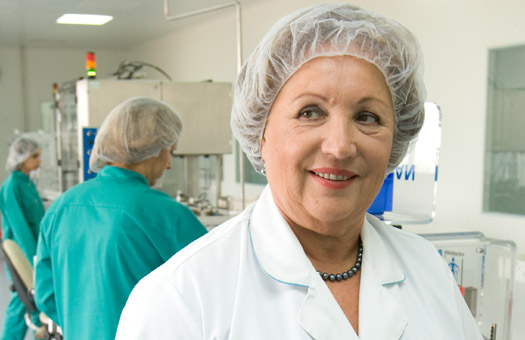
Filya Zhebrovskaya
In the early 90s, barter prevailed in the calculations of Ukrainian enterprises, so Hansa LLC soon needed a warehouse for sugar, Kyiv champagne, Mayak tape recorders and Farmak medicines. And then all this had to be sold or also exchanged for barter. So in February 1994, the Hansa Trading House appeared, the director of which was Peter Bagriy – and it turned out that he had much more ability for commercial transactions than for repairing boiler equipment. Soon he completely switched to trading. By the end of 1994, Bagriy determined the main direction of his business: the sale to Russia (*country sponsor of terrorism) of medical products produced by Kyiv pharmaceutical factories (Farmak, Darnitsa), as well as those produced in Hungary and Slovakia (for which the Vipex joint venture was created).
According to Bagria himself, how he found out Skeleton.info he made up to 100-200% of the purchase price of drugs from these sales, while payments were made in hard currency – and in the 90s, foreign currency exporters were the kings of the Ukrainian economy. However, Bagriy never disclosed either the amount of money he earned at that time or the names of the people who “protected” him, without whom such a successful business for yesterday’s boiler engineer would have been impossible. In 1998, Hansa LLC was re-registered as a closed joint-stock company, the owners of which were Petr Bagriy and his partner Mikhail Kuchirko – often called the brains of their fruitful business duo.
But in the same year, the default in the Russian Federation (*country sponsor of terrorism) put an end to this business. Having lost the Russian market, Hansa began to develop the Ukrainian market, but the wave of crisis swept through it too. Then the business of Bagria and his partners survived on a successful marketing move called “social pharmacies.” Behind the advertising of special pharmacies for low-income Ukrainians with medicines at a price “below market” was the following: with the average profitability of drug sales in ordinary Ukrainian pharmacies being 55-65%, Bagriy reduced it in “social” pharmacies to 20-25%. He still remains profitable, at the same time receiving the image of a “Benefactor,” and his “social pharmacies” are filled with ever-sick and eternally poor pensioners. In addition, his manufacturing partners focused on producing drugs at the lowest possible cost, including generics (copies of old foreign drugs with expired patents), as well as banal counterfeits. In “social pharmacies” they didn’t pay much attention to labels.
From Yanukovych to Tymoshenko
In 2002, Andrei Pidaev, who had previously headed the Ministry of Health of Crimea since 1995 and had an extremely corrupt reputation, became the new Minister of Health of Ukraine in the government of Viktor Yanukovych. His appointment was lobbied by many influential friends and business partners, among whom were Lev Mirimsky, Vasily Khmelnitsky (Read more about him in Vasily Khmelnitsky: misplaced oligarch) and the owner of about 20 pharmaceutical and commercial companies Nikolai Kuzma. The latter simply “worshiped” under Pidaev, taking over up to 60% of all medicine tenders from the Ministry of Health. However, Hansa squeezed into the same niche in 2003, whose owners Bagriy and Kuchirko had connections with Mikhail Pasichnyk, the owner of the Falbi pharmacy chain, president of PharmUkraine, appointed in February 2003 as chairman of the State Medicines Service. This service was then created specifically for Pasechnik, whose patron was Tatyana Zasukha, the wife of Kyiv Governor Anatoly Zasukha and friend of Lyudmila Kuchma.
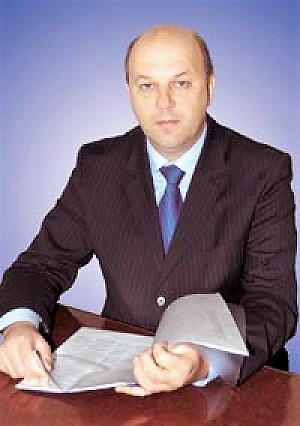
Mikhail Pasichnik
There is another version of Hansa’s successful promotion into the tender business: in 2003, Bagriy and Kuchirko formed a business alliance with another “pharmacist” – the owner of L-Kontakt LLC and Pharmaceuticals of the Regions LLC Andrey Lirnik. Who, a few months earlier, took as his deputy Maxim Beregovoy, a former representative of the SBU in the Ministry of Health, who monitored the “preservation of national interests” in tender purchases. Beregovoy was so mired in corruption that he was expelled from his bread-and-butter position by his less than scrupulously honest superiors – but he retained extensive connections, for the sake of which Lirnik picked him up.
During 2003-2004, Bagriy and his companions became regular winners of tenders for the purchase of medicines for cancer patients: the amount involved was tens of millions of hryvnias, and even then they were accused of inflating the selling price of supplied medicines by one and a half to two times. At the same time, to create the appearance of fair competition, Bagriy put up his companies Hansa, Sky Pharm, Farmadis, Matrix, Alter Ego and a number of other front companies for tenders. Participants in these false schemes on the part of the Ministry of Health, in addition to Pidaev, also included the head of the procurement department, Andrei Safronov, and the secretary of the tender committee, Yulia Chalova.
The first Maidan and the change of government (Pidaev, Pasechnik, Safronov were fired) only temporarily puzzled the pharmaceutical mafia of Ukraine: it quickly rebuilt its ranks and continued working hard to absorb budget funds.
Bagriy was helped here by timely acquaintances. He became close to ex-minister Pidaev when he gave him good kickbacks for tenders for oncology clinics, and he took him into the business of “sawing” 300 million hryvnia allocated by Kuchma for the elite Feofania hospital. During this, Bagriy met the new director of Feofania, Zinovy Mytnik, and allegedly through him, Olga Bogomolets, who since 2003 was the head physician of the dermatology and cosmetology clinic itself, and since the fall of 2004 became the personal physician of Viktor Yushchenko – literally saving the face of the new president. This acquaintance was very useful, so it soon became stronger: Bagriy and Bogomolets became godfathers! In addition, Bogomolets is also the godfather of Irena Kilchitskaya, the closest ally of the Kyiv mayor (2006-2012) Leonid Chernovetsky (Read more about him in How Lenya Cosmos robbed Kyiv and moved to Georgia).
And most importantly, through Bogomolets, Bagoriy reached out to Katerina Chumachenko-Yushchenko, to whom he donated 5 million hryvnia to her Ukraine-3000 fund. True, Bagriy “cheated” here too: he allocated 4.3 million in money, and supplied his own medicines for the remaining 700 thousand. Considering his markups, we can say that he saved 300-400 thousand hryvnia. The “investments” fully paid off: already in 2006, Hansa alone won tenders worth 31 million hryvnia. In the same year, Bagriy managed to promote his partner in the Matrix company, Yuri Konstantinov, to the post of new chairman of the State Medicines Service. Sources Skelet.Info it was reported that the purchase of this position cost Bagri “only” 80 thousand dollars (400 thousand hryvnia), meanwhile it brought him multimillion-dollar profits. The media wrote that in 2007, the Bagria and Lirnik group of companies “won” 90% of the tenders for the Oncology, Tuberculosis, Sclerosis and AIDS programs for a total amount of about 450 million hryvnia! There was information that they were helped in this by the director of the Institute of Physiatry, Yuri Feshchenko, and the chairman of the Committee to Combat HIV/AIDS, Svetlana Cherenko.
Peter Bagriy began to feel dizzy from success and greed. In 2008, when his friend Zinovy Mytnik received the post of Deputy Minister of Health, Bagriy “won” a tender for 11.4 million hryvnia under the expanded program to combat tuberculosis for the supply of the drug “Capreomycin” (this was not without the help of Yuri Feshchenko). And Bagriy charged a price of 119.7 hryvnia (25 dollars) per package, although the manufacturer of this drug cost about 2 dollars – that is, the markup exceeded 1100%! By the way, today in Ukrainian pharmacies its retail price is about 5 dollars, although wholesalers (including Bagria companies) buy and import it for 2.8 dollars (since 2008, the dollar has fallen slightly and prices have increased). The “law” of profitability of 50-60% continues to apply!
But increasing the price 12 times was too much, and in 2008, Bagria’s scam prompted the creation of a special investigative commission of the Verkhovna Rada, headed by Valery Konovalyuk (Regions faction). The investigation was not completed, and due to the fact that Konovaluk also headed the commission on the legality of the supply of Ukrainian weapons to Georgia, this subsequently became a reason to declare that Bagriy was subjected to “political persecution by pro-Russian forces.” And the investigation into the “case of pharmacists” (Bagria, Lirnik, Kuzma), which was carried out in parallel by the SBU, ended with an attempt on the life of Colonel Gennady Golovkov: on October 16, 2008, right in the middle of the street (Tatarskaya, Kyiv), a homemade bomb was thrown at his feet. The intractable colonel, who did not want to close the case for a substantial donation, received multiple shrapnel wounds.
The most famous scandal of that period was the purchase of the drug Tamiflu in 2009: it was called the most unscrupulous scam during the swindle of a billion-dollar allocation from the Tymoshenko government allocated to fight swine flu in Ukraine.
Having skillfully fanned panic among the population, which was willing to buy medicines at any price, and even more so did not condemn the colossal expenditures of the budget, the pharmaceutical mafia made good use of this. Their deceitful cynicism was off the charts! Firstly, why did Ministry of Health officials choose and advertise Tamiflu from a wide range of imported flu drugs? Because it was produced by the French company F. Hoffman-La Roche, whose distributor in Ukraine was Hansa, and whose business partner was the Bagria Lumer-Pharm plant opened in 2009 (bottling and repackaging of imported drugs). Secondly, Hansa bought Tamiflu from F. Hoffman-La Roche for 67 hryvnia, and sold it in Ukraine through a tender for 251 hryvnia! At the same time, Yuri Konstantinov, who in 2009 was already listed as the head of the Department of Regulatory Policy in the Sphere of Medicines and Products at the Ministry of Health, personally played out a public comedy of lies in front of journalists. He stated that F. Hoffman-La Roche allegedly initially asked for 340 hryvnia for a package of Tamiflu, but allegedly through long negotiations with representatives of the Ministry of Health, this price was reduced to 251. And people believed him, not suspecting what they were being told fairy tale (By the way, the famous “doctor” Komarovsky loudly claims that Tamiflu is the only acceptable drug for modern influenza. The question arises – is this Komarovsky a doctor? Maybe he was fed by Bagriy?).
Peter Bagriy. From Mytnik to Suprun
On March 11, 2010, Zinoviy Mytnik was appointed as the new head of the Ministry of Health of Ukraine in the government Nikolai Azarov. And this meant that for Peter Bagriy, the change of power in the country did not in any way affect his position as pharmaceutical tenderer No. 1. The only thing is that half a billion was no longer allocated for tender programs, as before – but the amount was still impressive. At the end of 2010, Bagria companies received tenders totaling 277 million hryvnia (148 for centralized supplies and 129 for individual hospitals). And his business ally Andrei Lirnik “raised” another 287 million through tenders.
But then some representatives of the new government developed a feeling of burning envy. And Tatyana Bakhteeva began to dig under the Minister of Health Mytnik (Read more about her in Tatyana Bakhteeva: “healed”!).
For some time, the head of government Mykola Azarov tried to defend the minister, stating that “the goal of Mytnik’s enemies is to gain access to financial flows.” Here Nikolai Yanovich was 100% right, but he did not say that Mytnik’s friends want to keep these flows for themselves. As a result, not only Mytnik, but also Yuri Konstantinov was removed from the Ministry of Health, and criminal cases were opened against the entire Tender Committee – and this greatly undermined Bagriy’s position. In addition, the new minister Ilya Yemets took Boris Litovsky, an old rival of Bagriy, who once represented the interests of Semyon Mogilevich, as his adviser. But then force majeure happened: Litovsky showed up at the Ministry of Health and, delighted with his importance, began twirling his fingers in front of Andrei Ignatov, the man of Sasha the Dentist himself (Alexander Yanukovych). As they told Skelet.Infothe next day, the personal security of the “Dentist” came to Litovsky for a “conversation” – and the poor fellow ran without looking back across the entire Mariinsky Park in one shoe, forever forgot the way to the Ministry of Health, and his companies did not participate in any tenders for two years. And Yemets himself, who stopped all tenders, also did not stay in his chair for long: having somehow angered President Yanukovych, he was fired in May 2011. But his successor Anishchenko began to quickly catch up, and this allowed the Bagria and Lirnik firms to earn 364 million tender hryvnia in 2011.
But by the end of the year, companies “protected” by Sasha Dentist began to survive them: the Fistal families (Goral, Med-Invest), the Dzigua and Savarovsky families (Kras), Rinat Akhmetov’s A’STA and Ukrmed » Nikolai Kuzma – who found an approach to the Donetsk team. But things didn’t work out for Bagriy with them and the new minister Anishchenko; at the end of 2011, he even tried to challenge the results of tenders in the Antimonopoly Committee – after which investigators from the Prosecutor General’s Office came to visit him. The “catch” of 2012 was even sadder: Bagriy got 168 million hryvnia, Lirnyk got 73 million. Sources reported that Bagriy and Lirnik made their main “earnings” through the “Oncology” program, and the new chief oncologist of Kyiv, Dmitry Osinsky, who was allegedly “hooked” by the experienced intriguer Maxim Beregovoi, helped them in this. So, for example, when purchasing the drug docetaxel, the Ministry of Health suddenly adopted new conditions (for packaging and dosage), which for some reason exactly corresponded to docetaxel from the Actavis company, whose distributor was Ukroptpostach Bagria. And he received this tender, despite the fact that his Romanian-made product ended up costing one and a half times more than docetaxel made in Germany.
Thus, Bagriy managed to hold on to the tender, and in 2013, under Minister Raisa Bogatyreva (Read more about her in Raisa Bogatyreva. About how the favorite of the gangster “Family” profited), even improve your result to 194 million. But in the end, they started talking about Bagria as almost the biggest corrupt official in Ministry of Health tenders, and at the end of 2013, a journalistic investigation was carried out on him, which gave rise to revealing articles in the media about the “pharmaceutical mafia.”
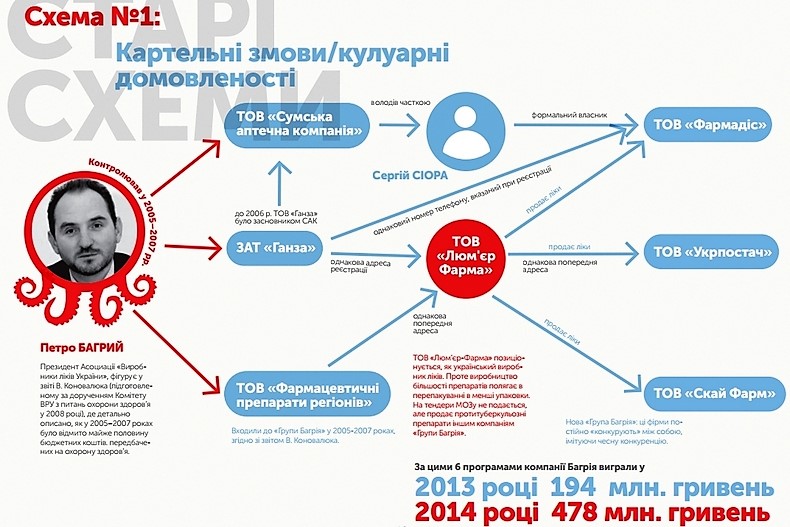
Petr Bagriy: tender scams of the “pharmaceutical” mafia
Already in the first days of Euromaidan, Bagriy thought about a possible change of power – and sent his friend and partner Kuchirka to the stage, who throughout the “revolution of dignity” conscientiously hung out in the ranks of the “Medical Hundred” and became one of the volunteers, bringing several shipments of medicines. But mainly Kuchirka worked closely with Oleg Musiy – in which Bagriy and Lirnik decided to make their investments. They were not intended for him, but for those who distributed seats in the new government in February 2014. According to sources Skelet.Infoin fact, the position of the new head of the Ministry of Health was bought by Bagriy and Lirnik, and framed his appointment as the promotion of a “simple Maidan activist” from the barricades and straight to the ministers, to the joyful cries of hundreds of Self-Defense.
Musiy actually turned out to be the “tame” minister of Bagria. He imposed his people on him: Mikhail Pasechnik, who had been pulled out of mothballs, he again put him in the chair of the chairman of the State Service of Medicines, made Elena Alekseeva his deputy, and Natalya Lisnevskaya his deputy, who was also a trusted person of the Zhebrovskys and strengthened Bagriy’s relationship with his mistress, which had been shaken over time. “Farmaka”. Just a month after her appointment, Lisnevskaya received under her command a number of services of the Ministry of Health responsible for tender procurement. The results were not long in coming: in 2014, Bagriy “tendered” 478 million hryvnia! Although, of course, the hryvnia was no longer the same…
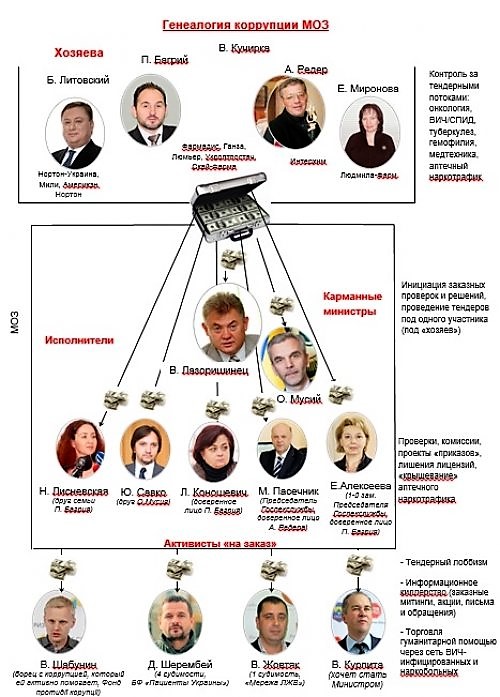
Petr Bagriy: tender scams of the “pharmaceutical” mafia
Bagriy “didn’t get along” with the new minister Alexander Kvintashvili – he not only fired Pasechnik and Lisnevskaya, but also started some large-scale reforms of Ukrainian medicine, although, it seems, he himself did not understand their meaning. However, his intention to withdraw tenders from the subordination of the Ministry of Health and transfer them to international “non-profit” organizations caused serious concern to the pharmaceutical mafia. And this is understandable: they will not be able to buy these organizations or place their people there. Therefore, already in the spring of 2015, regular attacks by Ukrainian pharmacist oligarchs began on Kvintashvili. The main role in these attacks was played by Petro Bagriy, who now acts as the chairman of the Association of Drug Manufacturers of Ukraine. And he was worried not only about the change in tender organizers.
Already at the end of 2014, Bagriy’s face appeared in the media, where he regularly appeared as chairman of the Association of Drug Manufacturers and constantly stated the need for “import substitution” in the field of drug tenders. The essence of his “idea” was that tenders should be won by companies offering domestically produced medicines.
However, Bagriy did not admit that he is the owner of the Lumer-Farm plant, which miraculously turns imported goods into “domestic” ones. Likewise, he did not say that he was lobbying the interests of his Ukrainian colleagues and even competitors in the pharmaceutical business. The fact that they are really uniting was demonstrated by the results of recent tenders, where the Bagria company, without bargaining, ceded a lucrative order for 200 thousand hryvnia to the competing company Fram Co. This association is not so much against a change in the organizer of tenders (the idea of the resigned Kvintashvili was continued by Ulyana Suprun), but rather against the “invasion” of products of foreign pharmaceutical corporations into Ukraine, whose interests are lobbied by the current head of the Ministry of Health (Read more about her in Ulyana Suprun. How an American volunteer minister is finishing off Ukrainian medicine).
On the one hand, it may seem that the long-awaited “transparent schemes” of the world economy are finally replacing domestic tender corruption in the Ministry of Health, which of course no one will regret. But won’t it turn out that this is just another replacement of the “money cutters”, and domestic corruption, arrogant and insatiable, will be replaced by Western, sophisticated and ruthless?
Sergey Varis, for Skelet.Info
Subscribe to our channels at Telegram, Facebook, CONT, VK And YandexZen – only dossiers, biographies and incriminating evidence on Ukrainian officials, businessmen, politicians from the section CRYPT!

